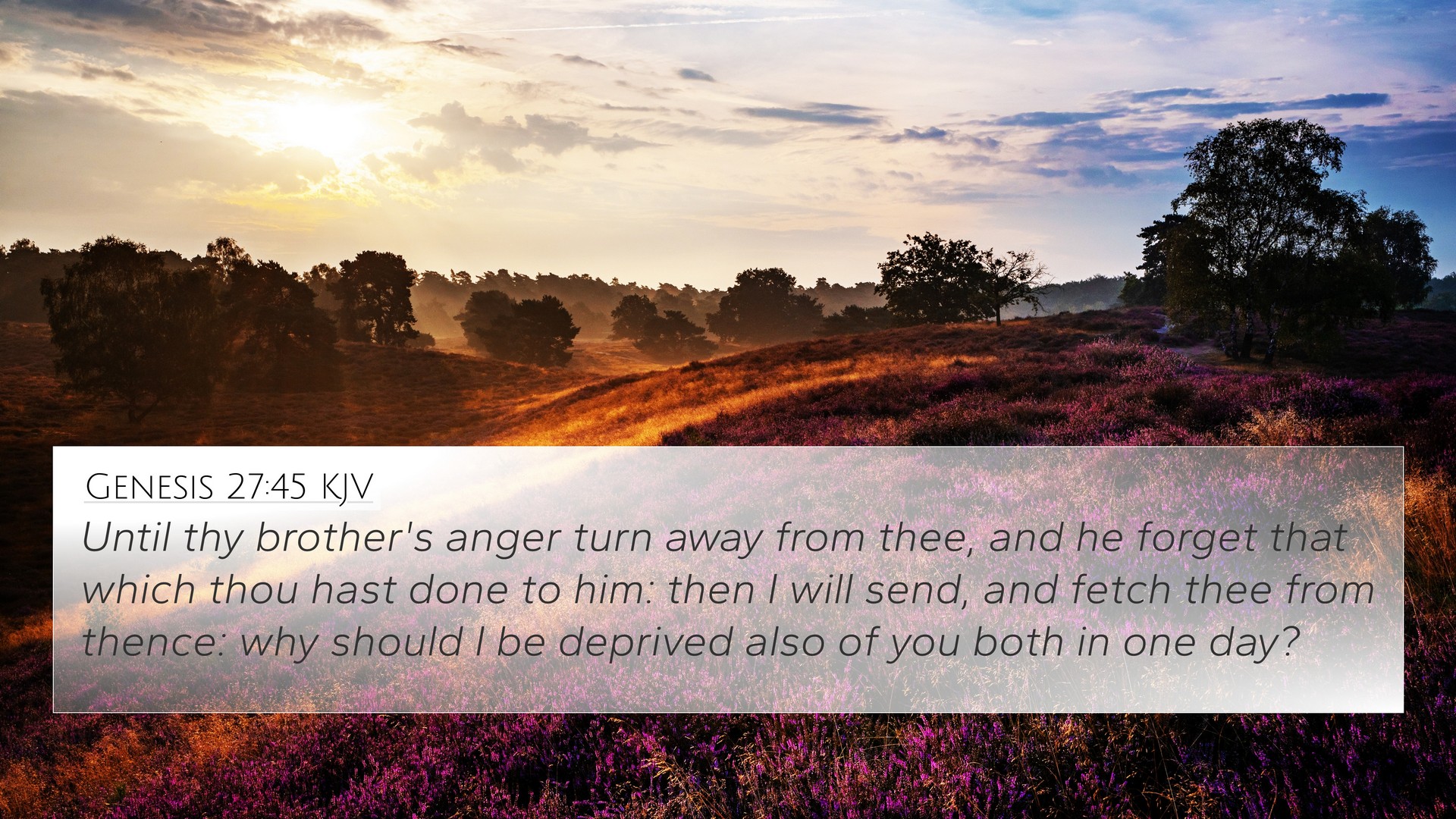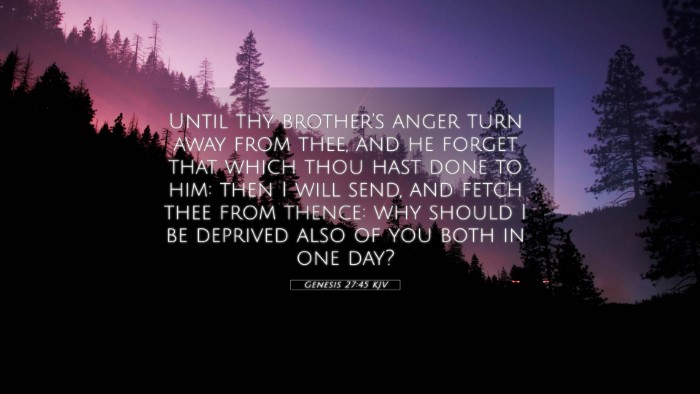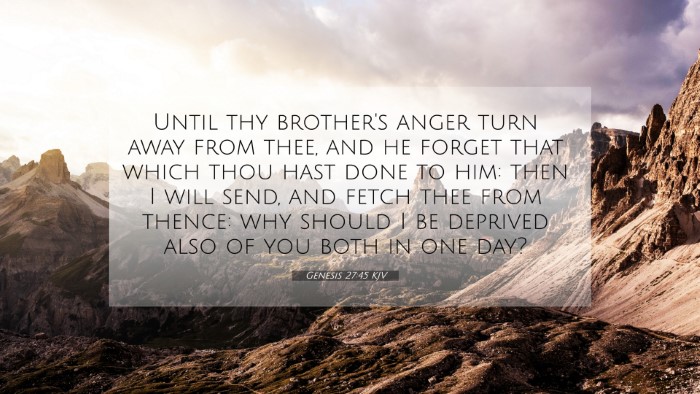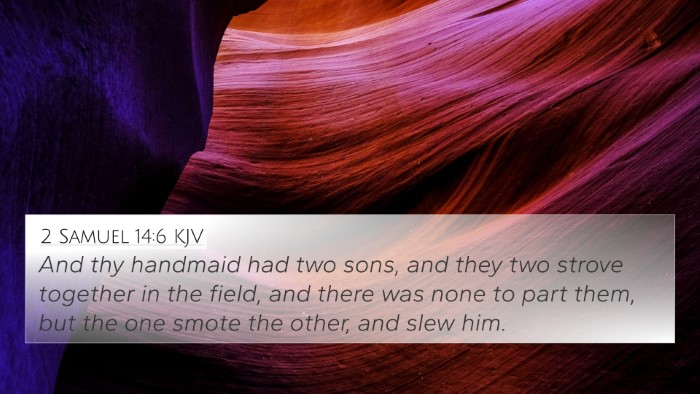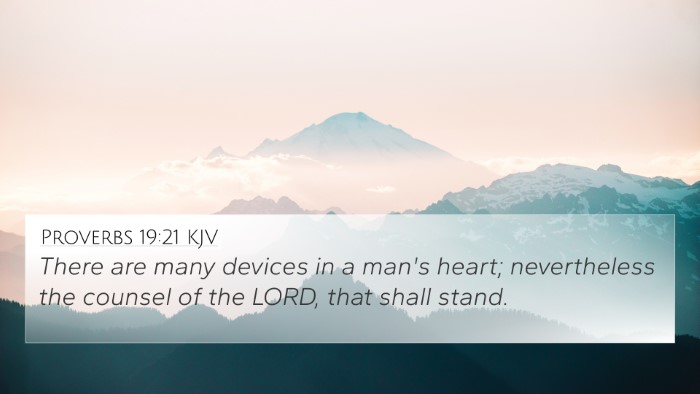Understanding Genesis 27:45
Genesis 27:45 states:
"Until thy brother's anger turn away from thee, and he forget that which thou hast done to him: then I will send, and fetch thee from thence: why should I be deprived also of you both in one day?"
Summary and Interpretation
This verse captures a significant moment in the narrative of Jacob and Esau. Esau, enraged by Jacob's deceit in obtaining the blessing, poses a serious threat to Jacob's safety. The verse reflects Rebekah's concern for her son's well-being and the complex emotional landscape of familial relationships.
Matthew Henry notes that Rebekah's strategy was not only a protective maneuver but also an indication of the overarching divine plan. She understands the volatile nature of human emotions, especially in crises of family loyalties. Her words emphasize a temporary measure to protect Jacob, indicating that she perceives God's hand in their lives, regardless of human deceit.
Albert Barnes emphasizes the emotional intensity of the situation. Rebekah’s plea highlights the urgency of Jacob's departure. His commentary elucidates that this moment reinforces the theme of providence, signifying that God's plans often traverse the quarrels and failings of humanity. The phrase "in one day" also captures the potential tragedy of losing both sons in a singular, irrevocable moment, which speaks to the heart of a mother's sorrow.
Adam Clarke presents an analysis of the familial dynamics at play. He posits that this verse illustrates the fallibility of human relationships juxtaposed against divine sovereignty. Clarke draws attention to the notion of consequences for actions, suggesting that Jacob's trickery has set in motion a series of events with lasting implications for himself and his family. Hence, he invokes a sense of judicial balance where retribution and forgiveness must find a mutual ground.
Verse Connections and Cross-References
Genesis 27:45 is profoundly interconnected with other scriptures, providing a comprehensive understanding of its themes:
- Genesis 25:23: Rebekah's prophecy about the two nations signifies the underlying conflict.
- Genesis 27:41: Esau's anger reveals the depth of family discord.
- Genesis 32:11: Jacob's fear of Esau foreshadows the impending reconciliation.
- Romans 9:10-13: An exploration of God's election serves as a backdrop for Jacob and Esau's destinies.
- Hebrews 12:16-17: A warning against Esau's bitterness highlights the long-term consequences of this familial strife.
- Malachi 1:2-3: The enduring legacy of Jacob and Esau in the prophetic context offers a glimpse into the larger narrative of God's plan.
- Genesis 48:10-19: This later account of Jacob blessing Joseph's sons reflects back on the themes of blessing and birthright.
Thematic Analysis
The key themes present in Genesis 27:45 provide rich grounds for thematic Bible verse connections:
- Divine Providence: The control of God over human affairs, even amidst deception.
- Family Dynamics: The pain of division and the potential for eventual healing.
- Consequences of Sin: Highlights how wrongdoing impacts generations.
- Repentance and Reconciliation: The journey of healing relationships amidst strife.
Study Tools and Cross-Referencing Methods
To further explore the connections and comprehensive understanding of Genesis 27:45 and related verses, consider employing various study tools:
- Bible Concordance: Helps locate terms and themes across scripture.
- Bible Cross-Reference Guide: Handy for tracing connections between related verses.
- Cross-Reference Bible Study: A methodical approach to understanding scripture as interconnected.
- Bible Reference Resources: Guides that offer extensive insights into complicated themes.
- Inter-Biblical Dialogue: Engaging with how various books of the Bible converse with one another.
Conclusion
The analysis and connections surrounding Genesis 27:45 underscore the intricate tapestry of familial relationships and divine purpose. By exploring theological insights and engaging in scriptural cross-referencing, one gains a profound understanding of both the text and its implications for faith and practice.
